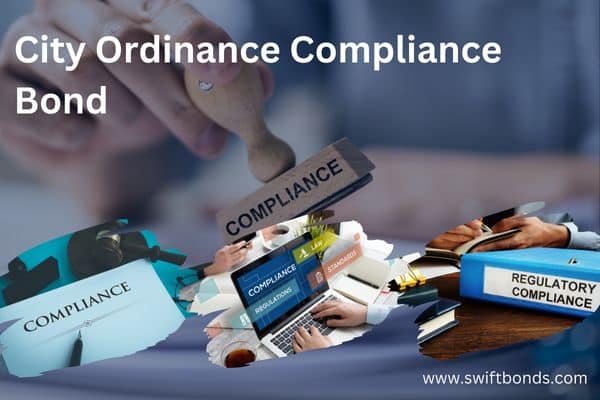Introduction
The world of finance can often feel complex and intimidating, especially when it comes to legalities and requirements like performance bonds a bond license. Whether you're a small business owner, a contractor, or just curious about the financial world, understanding what a bond license is and why it's important is crucial. This comprehensive guide will walk you through everything you need to know about bond licenses, from their purpose to how to obtain one, and even the nuances that vary by state.
Understanding the Bond License: A Comprehensive Guide
A bond license is essentially an official permission granted by a regulatory body that allows individuals or businesses to operate in certain fields while ensuring they adhere to specific standards. The requirement for a bond license typically applies to professions that deal with public funds or require trust from clients. This includes contractors, brokers, and various service providers.
What is a Bond?
Before diving deeper into the bond license itself, let's clarify what a bond is. A bond serves as a three-party agreement between the obligee (the entity requiring the bond), the principal (the party obtaining the bond), and the surety (the company issuing the bond).
Types of Bonds
Contract Bonds: These ensure that contractors fulfill their obligations under a contract.
License Bonds: Required for various professionals to comply with state regulations.
Court Bonds: Often needed in legal proceedings to ensure compliance with court orders.
Fidelity Bonds: Protect against employee dishonesty.
Why Do You Need a Bond License?
Having a bond license provides several benefits:
- Legal Compliance: Many states require specific industries to obtain bonds as part of their licensing process. Professional Credibility: A bonded status enhances your reputation among clients who view it as an assurance of reliability. Financial Protection: Clients can claim against your bond if you fail to meet contractual obligations.
Who Needs a Bond License?
Almost anyone working in regulated professions may require a bond license. Here are some examples:
- Contractors Real estate agents Insurance agents Mortgage brokers
If your profession involves handling client funds or providing services based on contracts, you might be on the list!
How To Obtain a Bond License
Step 1: Research Your State Requirements
Different states have varying regulations regarding who needs a bond license and how much coverage is required. Always check your state's requirements before proceeding.
Step 2: Choose the Right Type of Bond
Select the type of bond that aligns with your industry and needs. Consult with professionals if necessary; choosing wrong could lead to complications down the line.
Step 3: Application Process
Most applications will require documentation including proof of experience, financial statements, and sometimes even personal credit checks.
Example Table
| Step | Description | |-----------|------------------------------------------------------------| | Research | Investigate state-specific requirements | | Choose | Select appropriate type of bond | | Apply | Complete application with necessary documentation |
Step 4: Pay Fees
Bond licenses come with fees that vary how performance bonds work based on state regulations and type of bonding required. Ensure you budget for these costs accordingly.
Step 5: Renewal Process
Most bonds aren't permanent; they require renewal periodically—often annually—so keep track of expiration dates!
Understanding Different Types of Bond Licenses
Contractor License Bonds
These bonds guarantee that contractors will complete projects according to terms laid out in contracts.
Subheading Example
Why Are Contractor License Bonds Important?
Contractor bonds protect clients by ensuring work is completed satisfactorily, thereby fostering trust.
Real Estate License Bonds
These bonds are often required for real estate agents to operate legally within their respective states.
What Happens If You Don’t Have One?
Operating without this can lead to hefty fines or even losing your ability to sell real estate altogether!
Common Myths About Bond Licenses
Myth 1: "All Businesses Need Them"
While many do, not every business requires bonding! It's crucial to research based on your specific circumstances.
Myth 2: "Bonding Is Expensive"
Costs can vary widely depending on factors like credit score and profession—sometimes affordable options exist!
FAQs About Bond Licenses
Q1: What exactly is a bond?
A bond serves as an agreement between three parties—obligee, principal, and surety—to ensure obligations are met.
Q2: Who enforces bonding regulations?
Typically, state agencies oversee these regulations; however, additional local ordinances may apply as well.
Q3: Can I get bonded if I have bad credit?
It’s possible but may require higher premiums or additional collateral depending on risks assessed by surety companies.
Q4: How long does it take to get bonded?
The timeline can range from days to weeks based on paperwork completeness and background checks required by surety companies.

Q5: Is there an annual fee for maintaining my bond?
Yes! Most bonds require annual renewals along with associated fees which can vary significantly by type and location.
Q6: What should I do if my application gets denied?
Reach out directly for clarification on denial reasons; there may be options available for reapplication or appeal processes!
Conclusion
Navigating through the intricacies of obtaining a bond license doesn't have to be daunting when armed with knowledge. Understanding what it entails—the types available, their significance in protecting both consumers and service providers alike—will empower you in your professional journey. Whether you're starting fresh or looking at renewing an existing license, this comprehensive guide serves as your roadmap in understanding all aspects related to "Understanding the Bond License". In today’s competitive landscape, being informed isn’t just beneficial—it’s essential!